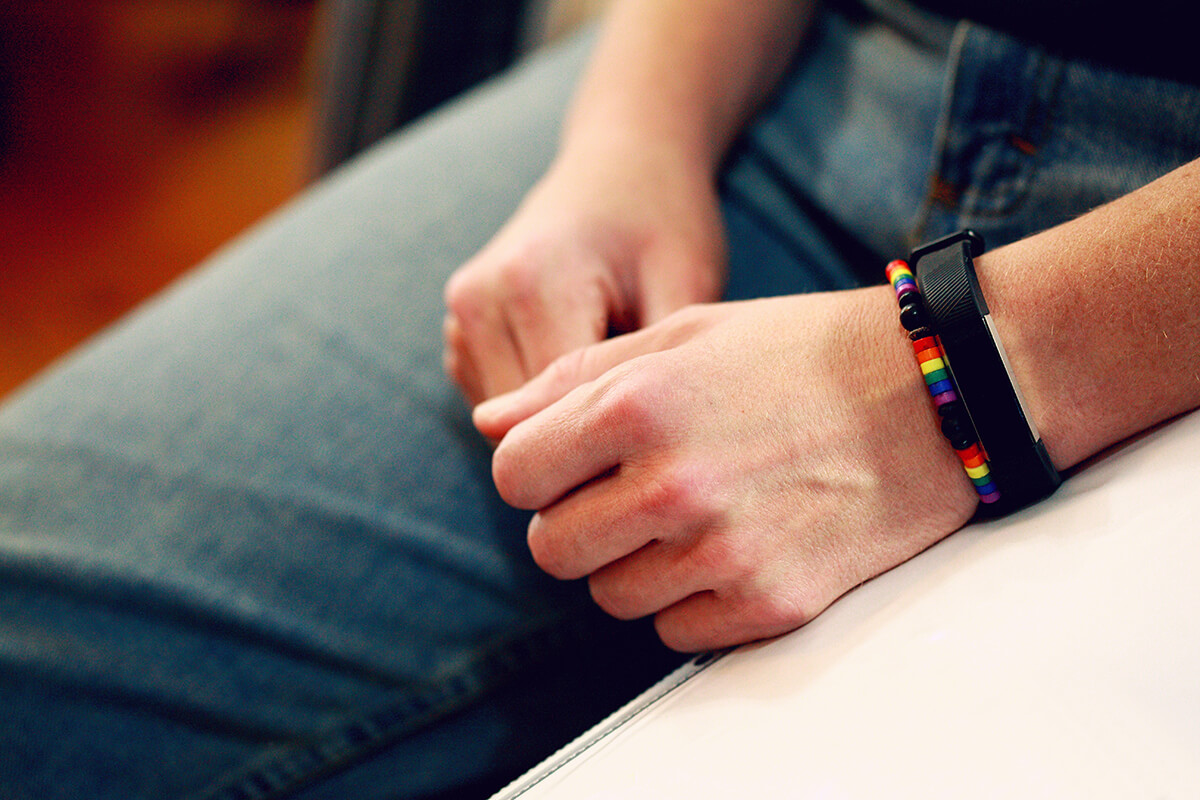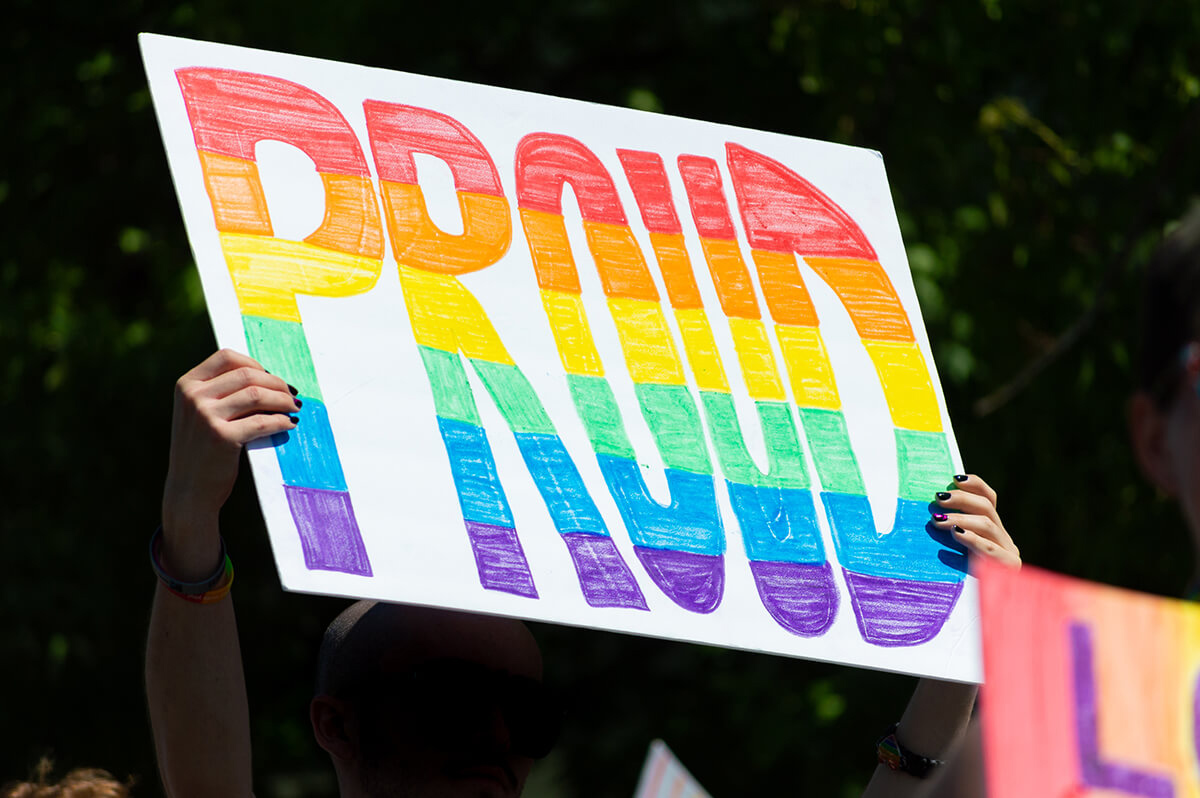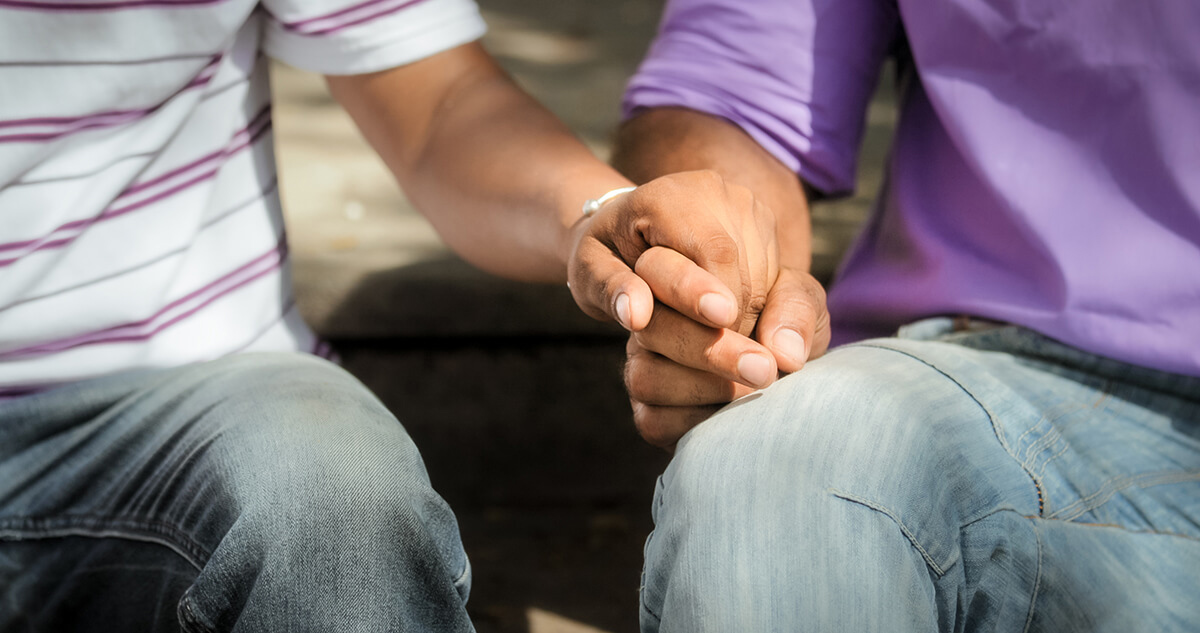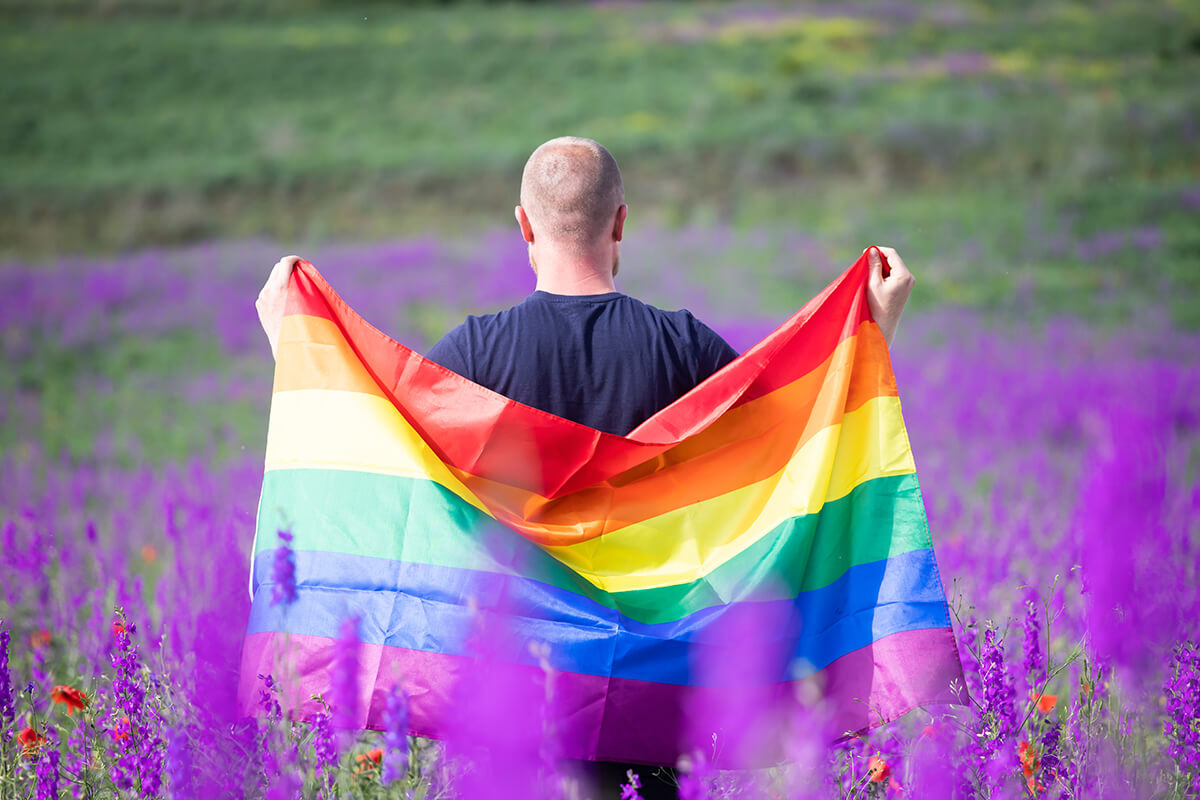 05 Jan 2022
05 Jan 2022
BY: admin
Counseling
5 Bad Habits to Change in the New Year
Counseling for the LGBTQ Community in Denver, Colorado
As 2022 begins, many people find themselves resolving to do something new. However, it can be equally valuable to think about what not to do in the new year. While there is never a wrong time to change your life, the new year offers an inspiring starting point for us to make bigger changes and commit to new goals.
These five bad habits can help you enjoy a more peaceful, connected and rewarding 2022. If you think that getting over them is difficult, don’t worry. At Caring Heart Counseling, we’re always here to help you make meaningful changes in your life.
1. Overworking Yourself
No more skipping breaks, doing unpaid work or pushing yourself too hard. Your job should work for you just as much as you work for it; overworking may be a sign of perfectionism, anxiety or even an avoidance strategy for depression. Working too much can also cause serious health effects you don’t have to suffer. Rather than avoiding problems through your work, think about how a better balance could lead to a fuller life overall.
2. Giving in to Self-Doubt
Whether it’s not meeting new people or shutting down an idea, 2022 is the year to let go of self-doubt. Everyone feels insecure from time to time, but chronic self-doubt can keep you trapped somewhere you don’t want to be for years at a stretch. What ways is self-doubt stopping you from living the way you truly want?
3. Skipping Exercise
Exercise is great for mental health, even if it’s just 10 minutes a day to start. Make it a priority to move your body, connect with your environment and give yourself a break from screens. Routine exercise improves energy levels, can lower anxiety, ease depression, reduces stress and improves sleep, just to name a few benefits.
5. Delaying Your Own Happiness
How many times can you forgive someone only to get hurt again? A lot of us mistake forgiveness for new chances, but in reality, forgiveness is something we do for ourselves. Healing from trauma means letting go of hurt while asserting new boundaries that protect our emotional and mental well-being. If you have a tendency to let old friends, family and ex-partners into your life, only to wind up hurt again, this is the year to learn the blessing of healthy boundaries.
4. Giving People Too Many Chances
I’ll be happy when I have a better job. I’ll be happy when I find someone to be with. I’ll be happy when I finally move. While our goals can motivate us, they can also cause us to delay happiness and miss out on living in the here and now. Rather than putting happiness on a pedestal, consider learning mindfulness, practicing gratitude and finding contentment in the little things.
If you want to kickstart 2022 on a high note with a bit of help, Caring Heart Counseling is here for you. From making big changes to healing from the past, our skilled, compassionate counselors are eager to meet you. Please contact us today to schedule your next virtual therapy session.
 17 Dec 2021
17 Dec 2021
BY: admin
LGBTQ
Counseling for the LGBTQ Community in Denver, Colorado
Counseling for the LGBTQ Community in Denver, Colorado
As someone who identifies as LGBTQ, you deserve a therapist who understands the complex emotions and struggles you experience. The LGBTQ population is twice as likely to suffer from depression, anxiety and other mental health problems. As therapists, we believe it is our duty to provide the highest quality of care, compassion and acceptance to anyone, especially those who are coping with unique challenges related to their sexual orientation and gender identities.
At Caring Heart Counseling, we provide LGBTQ counseling in Denver, Colorado, and its surrounding areas that accepts everyone for who they are and meets them exactly where they are in their personal journey.
Why We Need LGBTQ Therapy
While LGBTQ people deserve to be acknowledged for who they are, not who they love, we also believe their identities should be openly celebrated. Many people attempt to be inclusive by ignoring a person’s identity altogether, but this can feel just as harmful as discrimination.
If you are currently questioning, you may be secretly wondering how your orientation or gender could impact your career, family and relationship. While this is a highly personal matter , you don’t have to work through it alone.
Caring Heart Counseling offers confidential therapy for LGBTQ people at all walks of life and stages of self-discovery. Whether you are thinking about coming out to your family or want to transition as a transgender person, we are here to listen and support you.
LGBTQ Mental Health Challenges We Treat
There are so many unique challenges that an LGBTQ person faces; some of them leave lasting scars that may never fully be forgotten. That doesn’t mean you can heal, grow and find happiness as exactly who you are. Living the life you want, even if you don’t fully understand what that looks like yet, starts with acceptance.
Some of the issues LGBTQ people face need to be addressed from a perspective that understands the role your gender and sexuality play in your life. These include:
- • Trauma from homophobia, transphobia, discrimination and abuse.
- • Rejection from friends, family or peers.
- • Homelessness and housing insecurity.
- • Substance abuse as a coping mechanism for depression and anxiety.
- • Thoughts of suicide and struggles with self-harm.
- • Fear of judgment and lack of understanding.
Virtual marriage counseling helps couples meet their needs on their own time. We’ll work by your schedule, so you’re always able to attend therapy when it works for both of you. If you decide that our virtual sessions are beneficial, you can also always decide to transfer and see us in person, too.
Therapy for Everyone
We believe therapy should be accessible to everyone regardless of their employment status, income level or any other criteria. We currently accept Anthem BlueCross Blue Shield, Aetna and Medicaid insurance. That’s why we provide flexible payment options. Even if you don’t have insurance, we may be able to work out a payment arrangement that works for your budget.
Please do not hesitate to reach out to us, even if you’re worried you can’t afford therapy. We are here to work with you and get you the help you need.
We Are Here When You Need Us
Please contact us at Caring Heart Counseling to learn more about our Denver counseling services. We are happy to answer any questions you have and get to know you. If we are not the right fit, then we will do everything we can to help you find the perfect therapist for you.
Our job is to make sure you have a safe space to be seen, heard and validated for exactly who you are. Our LGBTQ therapy is open to everyone, and we are always just a call or message away.
Contact us now at 720.314.7378, or contact us to send us a message.
 03 May 2021
03 May 2021
BY: admin
LGBTQ
Everything to know about LGBTQ+ Counseling
Everything to know about LGBTQ+ Counseling
Denver diversity is flourishing, and our community is becoming more accepting, supportive and celebratory of every gender identity and sexual orientation our members embody. But there is still stigma, stereotypes and difficult challenges that members of the LGBTQ+ community face on a daily basis. These experiences result in a higher prevalence of mental illness and emotional struggle compared to non-LGBTQ+ people. And, these experiences may cause you to wonder if a therapist could possibly understand your perspective.
At Caring Heart Counseling, we offer sensitive, compassionate and educated LGBTQ+ counseling for everyone. LGBTQ+ therapy addresses all of the same problems that individual counseling does, but it provides an added level of insight and understanding to create a safe space for anyone to express themselves and their unique experiences.
In this guide, we’ll help you learn everything you need to know about LGBTQ+ counseling. We’ll cover how it works, what to expect and topics we can help you address in your life. At Caring Heart Counseling, you always have an ally who wants to listen, affirm and uplift you no matter who you are or where you are on your journey.
LGBTQ+ Counseling Helps People at Every Stage of Self-Discovery
One of the biggest struggles people face when exploring their gender and sexuality is worrying whether or not they’re “enough” for a particular label. Do you have to date men and women on rotation to be a “real” bisexual? What does it mean to be non-binary, and how do you know when it’s the right time to transition to a different pronoun? Does being gay mean you can’t have feelings for someone who is transgender? All of these questions and more can be addressed through counseling. We are not here to tell you what’s right or wrong, but to help you discover yourself more and build the confidence you need to lead life as the most authentic version of yourself.
Going to counseling can be so liberating as an LGBTQ+ person because you finally have a place to express all of your thoughts and feelings in a judgement-free zone. Your therapist isn’t going to force you into any label. Instead, we’re focused on helping you accept who you are in the present moment and find love for that individual. It’s the underlying being who matters. Whether you believe in souls or spirits or just consciousness, therapy helps you connect with the “you” underneath it all and become more confident in that being as you continue to explore your identity.
This can be an especially cathartic experience for people who are contemplating coming out later in life or those wrestling with trauma, needing to heal from the past before they can truly move forward into a brighter future.
It Isn’t Just for Adults
Adolescence is when most people in the LGBTQ+ community begin to confront feelings about their gender identity and sexuality. This is a natural time to begin considering where you fit in the world, who you want to become, and how you want to connect with others. For parents, having a teen come out as gay, lesbian, bisexual, queer, transgender or non-binary can be a confusing time. You may lack the words to give them the love and support you want to express; you might struggle to help them overcome their problems and insecurities.
By working with an LGBTQ-informed therapist, parents and teenagers alike can learn to navigate identity and sexuality. If you’re going to support your teen as they transition, then family counseling can also help everyone be as understanding and supportive as possible.
Many teens who identify as LBGTQ+ also struggle with mental illness, namely depression and anxiety. Therapy can help them learn to manage their symptoms and resolve them as they become more secure about themselves and who they are.
It Offers Unique Treatment for LGBTQ+ Substance Abuse
There is a higher prevalence of substance abuse in the LGBTQ+ community than any other group worldwide. Finding ways to cope with stigma, abuse and discrimination can come in many forms, and unfortunately, many of them tend to be self-destructive and harmful. In counseling, we also handle serious topics like substance abuse, self-harm and suicidal thoughts.
Beyond treating just the symptoms, we look at the underlying experiences that have influenced your mental health so far. Understanding how substance abuse affects the LGBTQ+ community and the role it plays in your life so far. In addition to substance abuse counseling and talk therapy, your therapist can also help you explore various treatment options and play an active role in your recovery.

Therapy Can Be a Safe Space for Unsupported Teens
Self-help resources allow teens to tackle many of the issues they face on their own, but they still need a supportive environment to thrive. Unfortunately, not everyone is accepting of LGBTQ+ identities. While this is definitely changing, many traditional communities and even individual families are still wrought with homophobia and transphobia. This can be devastating as someone who feels completely rejected by their parents, siblings or close relatives.
Rather than simply having to “suck it up” and deal with all the pain and heartache involved with being discriminated against, therapy can help LGBTQ teens find resources they need while also providing identity affirmation. When you’re a young person who has taken the courage to confide in your loved ones, it is heartbreaking to have your identity questioned, invalidated or flat-out rejected. Therapy can be a place to heal from that, find acceptance and shift your focus toward a brighter future filled with people who will love you for exactly who you are.
Parents Can Educate Themselves Without Fear
When your child comes out as trans or non-binary, it’s common to panic and feel at a loss for words. You may fear that asking them questions will make them feel unsupported or even offended. It’s also natural to wrestle with a sense of grief and loss over the future you envisioned for your child as you knew them. Sharing these thoughts can cause guilt, so you may be tempted to repress them. But you cannot fully support your transgender or non-binary child without first fully coming to terms with who they are.
LGBTQ+ counseling allows you to express everything you’re feeling in an open space free of judgement. As therapists, we help both individuals and their loved ones confront some of the most difficult thoughts and feelings they carry around with them on a daily basis. At the core of Caring Heart Counseling’s LGBTQ+ counseling, we have a deep sense of love and acceptance for everyone. We know that it isn’t always easy to understand or even accept someone’s identity. Most of the time, you just need space to process and skills to communicate better.
In addition to taking care of your own mental health, our therapy for parents of LGBTQ+ children provides guidance and support for major topics such as healthcare, gender reassignment and coming out to family.
Counseling Can Make You a Better Ally
If you want to support your LGBTQ friends, there are many ways you can do so, but there are also some pitfalls to avoid. Sometimes, people with the best intentions still act in a way that is considered insensitive or misplaced to their loved ones. This doesn’t have anything to do with your care or compassion; the LGBTQ experience is unique, dynamic and extremely individual. Although your friends may have commonalities with people in the community, they are still their own beings whose gender identity and sexual orientation have developed on their own.
To be the best ally possible, speaking with an educated counselor can help. You can ask questions openly without worrying about offending your friends. You can also gain valuable insight into the common mental health struggles that affect people in the LGBTQ community, which might affect your friends but are not often shared. A therapist can offer valuable tips on how to support someone with a mental illness and even offer important tips and warning signs to watch out for if you’re ever worried about someone.
It Can Help You Break Free From Perfectionism
Perfectionism in the LGBTQ+ community is rampant, and it can lead to serious problems with chronic stress, depression and anxiety. Underlying perfectionism is a fear of not being good enough or feeling like you constantly have to prove your worth to others. It’s never enough to just be “good enough; you always have to be the best. Standards that constantly reach infinitely higher leave you feeling exhausted, frustrated and unhappy. The perfectionist mindset is destructive and, ultimately, unfair to you.
As a human being, you’re allowed to make mistakes, change your opinions and grow. You’re allowed to be less than perfect. In therapy, we can address reasons why you may be a perfectionist and how perfectionism is affecting your life. Building greater self-love, acceptance and forgiveness can ultimately help you be kinder to yourself and everyone around you.
You Can Heal From Depression
People in the LGBTQ+ community are 4.5 times more likely to suffer from depression. Factors such as lack of support, discrimination, trauma and general minority stress all contribute to depression. What starts off as fear can morph into a feeling of hopelessness that clouds everything in your life.
Depression is a unique experience to everyone, and good therapy will always place your experience as an individual over your place in any community. But good therapy also recognizes that the experiences of being LGBTQ+ are unique in and of themselves, and you deserve a counselor who understands these nuances.
Together, you and a licensed counselor can talk through your feelings, explore your thoughts and find real ways to get relief from depression. It’s about so much more than simply taking medication or getting things off your chest. You need a supportive environment that helps you build upon your strengths and find sources of hope and purpose in the world.
Gender and Sexuality Anxiety Can Be Treated
LGBTQ+ people experience some form of anxiety or depression at a rate of 1.5 to 2.5 more often than the heterosexual, cis-gender population. A lack of understanding from others can often cause people to struggle in isolation because they can’t tolerate constantly having to explain themselves or validate their experiences to other people. LGBTQ+ counseling alleviates that burden and gives you freedom to express everything without having to worry about being judged or invalidated.
When you’re a child, you took in many messages that subconsciously told you the “right” way to be a man or woman. You were likely taught that there are only two genders, and the gender you have coincides with your biological sex. For decades, “gay” was used as an insult, and people’s sexuality were often the brunt of cheap drama and comedy on television. To a developing child, this can lead to harmful mental frameworks that ultimately affect how you see yourself when you grow up.
Identifying as LGBTQ+ is different to everyone, but not knowing where you exactly fit in can lead to anxiety and depression. Mental and body dysphoria create lasting psychological impacts that can make even simple acts like getting dressed feel hard and burdensome. Fear of discrimination, judgement and a general lack of support can all cause someone to struggle with their mental health. Informed counseling for LGBTQ+ people gives you the right level of care you need to start healing. Your identity itself is never the problem; it’s the perspective with which you see it. At Caring Heart Counseling, we want every person to build an image of themselves that’s rooted in acceptance and love, not perfection and expectation.
You Can Gain a Deeper Appreciation for Who You Are
The LGBTQ+ community is extremely diverse and incredibly beautiful. You are never alone. Your feelings, experiences and difficulties are all valid and, more often than not, shared by others leading similar lives. If you struggle to accept your gender, sexuality or identity, counseling can help you discover the beauty in being you. There are so many strengths in the LGBTQ community, and we are happy to help you discover them.
In addition to recognizing community-based strengths, counseling also helps you learn to recognize and appreciate your own. You bring so much to the table, and therapy is a valuable tool that can help you realize just how much you have to offer.
Denver LGBTQ Counseling for Everyone
LGBTQ+ counseling at Caring Heart is as individual as each client. We are always evolving and educating ourselves to provide the greatest level of care and understanding to everyone we work with. If you’d like to learn more or schedule a face-to-face or virtual therapy session with one of our counselors, please contact us today.
 24 Mar 2021
24 Mar 2021
BY: admin
LGBTQ
5 Strengths Unique to the LGBTQ Community
5 Strengths Unique to the LGBTQ Community
The LGBTQ community is one of, if not the most, diverse groups in the world. Being a gay, lesbian, bisexual, transgender or non-gender-conforming individual in today’s society can be overwhelming in many regards; although the world has, for the most part, become much more accepting and even impassioned about advocating for equality, there is still a tremendous amount of work that needs to be done. Beyond the political and social aspects, many teens in the LGBTQ+ network feel a pressure to quickly identify and conform to their own group’s standards and ideals.
Stigma and stereotypes persist, even among allies. Rather than embracing someone for who they are as a unique person, identity erasure may occur as a person becomes a token “gay friend” or other concept to people around them. Mental illness is still higher in the LGBTQ community than any other group, and with so many obstacles to face, Caring Heart Counseling believes it’s also important to take time to celebrate the strengths of the community.
Courage
It’s impossible not to be reminded of courage when we reflect on the efforts of protesters, advocates and and every day individuals who live their lives directly facing discrimination, ignorance and inequality. It takes immense courage to speak up and live authentically as an LGBTQ+ person. Although you may still be closeted, the fact that you carry your identity with you each day still shows incredible strength.
Self-Awareness
Coming out is not something that someone does with no forethought. It often takes years of personal exploration to fully understand, acknowledge and embrace your identity. The insight you have into your own thoughts, emotions and identity are a valuable asset that make you more empathetic toward others.
Originality
When you are always told that the “norm” is to be heterosexual and cis-gender, it can be difficult to live outside of the bubble. But people in the LGBTQ community are champions for authenticity; their bravery is embodied in their natural expression of who they are. You don’t have to be “out and proud” to still be living authentically, either. Everyone represents and expresses their individuality differently, and it’s something that the LGBTQ community embraces.
Resilience
Despite misconceptions, stereotypes, discrimination, hate crimes and so much more, the community is still thriving in the face of it all. People continually share their own stories and triumphs, spreading hope to anyone who feels trapped by their current situation.
Inclusivity
The community strives to accept anyone and everyone who identifies outside societal gender and sexuality norms. While there is still some internal division and debates, the LGBTQ community at large is incredibly diverse, inclusive and welcoming to everyone. Being able to say that you are a part of a community that takes others in where the world has failed is no small accomplishment, and it is a source of pride and strength that many hold dear.
Finding Your Strength
If you are ever struggling in your own identity or with mental health in general, please contact our Colorado therapists. We offer specialized, compassionate, person-centered therapy for people in the greater Denver LGBTQ+ community. We also provide a wide range of other services that you can review here. Please reach out to us today with any questions or to schedule a session.
 17 Mar 2021
17 Mar 2021
BY: admin
LGBTQ
Why Is Depression More Prevalent in the LGBTQ Community?
Why Is Depression More Prevalent in the LGBTQ Community?
Mental illness is more common in the LGBTQ communitites than any straight, cis-gender group. Approximately 4.5 precent of the United States population identify as gay, lesbian or bisexual, and over 39 percent have expeirneced a mental illness within the last year. In 2015, 60 percent of LGBTQ youth reported being so sad that they were no longer partaking in activities they once enjoyed. People who identify as transgender are also more likely to experience depression and attempt suicide. Why are people in the LGBTQ community experiencing depression at such a greater rate than the rest of the population?
There is no single answer, and we would never attempt to identify the true reason for an individual’s unique experience with mental health. However, there are some common experiences and themes in the lives of people who identify as LGBTQ that can lead to the development of depression. Understanding these causes can help you better understand and support a loved one or even help yourself.
Non-Supportive Family Members
LGBTQ youth who do not have family support are much more likely to experience depression, self-harm and attempt suicide; there is also a pandemic of youths being kicked out of their homes and thrust into homelessness because their parents or guardians do not accept them for who they are.
Even if someone can keep their housing, living under the same roof as people who are openly homophobic, transphobic, and/or abusive poses life-threatening risks to someone’s mental health. Depression and its accompanying feelings of hopelessness, shame, and worthlessness, can stem from a non-supportive environment.
Lack of Understanding and LGBTQ Resources
Despite the fact people are more open about mental health today, there is still limited knowledge surrounding the unique experiences, challenges, and emotions that influence an LGBTQ person’s mental health. Even doctors and therapists can be ignorant to the influences that cause their patients to experience depression. Failing to recognize the added challenges of being LGBTQ can worsen a person’s feelings of isolation.
Minority Stress
Although the community is millions strong, almost everyone who identifes as gay, lesbian, bisexual, trans, or queer has felt alone and outcasted at some point. LGBTQ people deal with constant stress and anxiety about their own safety, their future and their personal rights. It’s not something easy for a non-LGBTQ person to understand. It is exhausting trying to explain it, so most people stay quiet and suffer in silence.
People in the LGBTQ may also experience pressure as a minority to be an advocate for their group; however, taking on the role of educator is draining and can ultimately create more stress and pressure that negatively affects your mental health.
Colorado LGBTQ Counseling & Therapy
Our therapists offer care to LGBTQ teens and adults throughout Denver. We don’t believe that there is anything you need to change about yourself, only things you may need to overcome to live more authentically. Whether you feel trapped, alone or afraid, we are here to listen and help. Please contact us today to learn more and request an appointment at your earliest convenience.
 11 Mar 2021
11 Mar 2021
BY: admin
LGBTQ
The Challenges of Coming Out in Your 30s and 40s
The Challenges of Coming Out in Your 30s and 40s
National Coming Out Day has been observed since 1988, and it still stands as a day of liberation and celebration for millions of people each year. But if you are in your 30s or 40s, you might worry that you’re too old to come out as gay, lesbian or another sexual orientation. While it may feel like coming out young is the norm, there are over 3 million Americans over 50 who identify as LGBTQ, so you are not alone.
At Caring Heart Counseling, we have therapists experienced in working with LGBTQ clients who can help you navigate the unique struggles and challenges you face, including coming out in your 30s and 40s.
Fears About Coming Out Later in Life
The biggest fear most clients in their 30s and 40s have is the impact they’ll have on their loved ones. You may have children, close friends or a family who has a specific image of you that you fear will be shattered if they know your sexual orientation. You could also feel torn between the straight life you’ve led, even if people just assumed it, and the gay world that feels foreign and unfamiliar.
There can be a serious amount of stress, anxiety and discomfort toward embracing oneself as LGBTQ. You may not even know if you fully identify as gay, lesbian, bisexual or something else entirely. This can naturally lead to an avoidance that keeps you trapped in silence, unsure when or if it’s a good idea to be more open about your identity.
Can Counseling Help Me Come Out?
Therapists who have experience in treating LGBTQ clients can help them navigate the pros and cons of coming out. They can’t tell you when to do so, but they can help you explore the process, practice and decide who to let in on your personal life. What’s most important is figuring out what feels most comfortable and safe for you; you should never be forced to come out from societal pressure or preconceived notions. Likewise, you shouldn’t be condemned to a life that doesn’t feel genuine because you fear you’ve missed your time to come out.
There’s Never a Wrong Time to Come Out
While it’s never too late to be open about who you are and who you love, it can be daunting for someone who feels like they’ve “missed the mark.” The younger generation are so open about their sexualities and gender identities that gay, lesbian, bisexual and other LGBTQ people might feel like they’re “too old.”
You could also be in a marraige or long-term relationship with a heterosexual partner and feel guilty telling them the truth about your sexual orientation. Perhaps you’re currently single but your past relationship history has family and friends believing you’re straight. In either case, it is still 100-percent okay and acceptable for you to come out and embrace your identity.
Contact us to learn more about our individual LGBTQ counseling in Colorado. Our therapists are always happy to answer any questions you have about the therapeutic process and what we can do for you.
 03 Mar 2021
03 Mar 2021
BY: admin
LGBTQ
Why Perfectionism Plagues the LGBTQ Community and How to Deal With It?
Why Perfectionism Plagues the LGBTQ Community and How to Deal With It?
For so many people, being gay, lesbian, transgender or queer makes them feel broken. They may have been explicitly told their identity is unacceptable or wrong by non-supportive family members; if they lived in the closet for a long time, there is an innate desire to make everyone happy and prove themselves as “good enough” that can transform into a major struggle with perfectionism.
Being LGBTQ is more accepted than ever, but that doesn’t automatically make it any easier for anyone. Coming out is still scary, and there are still many people who will judge you based on hurtful stereotypes, negative stigmas and false ideas about who you are. You might even find yourself struggling to accept yourself as LGBTQ because you don’t feel like you’re living the way you should.
To overcome perfectionism, it’s important to first understand the way it’s linked to your identity.
A Protection Against Discrimination
While they’re still young children, many LGBTQ men, women and individuals were picked on or shunned by classmates. They may have been called gay as an insult or had other slurs hurled at them. At any age, this would be painful, but to a child who is still so vulnerable emotionally and mentally, it can be detrimental.
When you don’t feel accepted for who you are while you’re still developing, it can lead to constant feelings of worthlessness and insecurity in adulthood. To overcome the feeling of being “not good enough,” perfectionism can emerge as a defense mechanism. Proving yourself to others, whether it’s as the most talented, smart or successful, becomes a means of keeping yourself safe.
How Perfectionism Holds You Back
On the outside, many perfectionists really are successful. They might hold esteemed degrees or academic credentials, have great jobs in sought-after fields and be living a life others even envy. But that doesn’t mean they’re satisfied. In fact, at the core of perfectionism, there is a driving force of dissatisfaction. Nothing really feels “enough” because you could always do more, be more, look better, etc.
Left unchecked, perfectionism can create a cycle of anxiety and depression that makes achievement even harder. This, in turn, fuels greater feelings and fears of inadequacy. You’ll suddenly find yourself trapped trying to be the best while constantly feeling the worst.
Hiding Behind the “Perfect” Image
For many trans men and women, being “perfect” means conforming to everyone else’s idea of what they should look like. If you are closeted, this could mean embracing the epitome of masculinity or femninity while denying your true identity. If you are open but still struggle to look the “right” way, vulnerability and intimacy become challenges rather than joys in any relationship.
Rather than feeling comfortable showing someone who you are, there is an underlying fear that any type of imperfection is a fatal flaw that no one will ever be able to truly accept and love.
Overcoming Perfectionism Through Therapy
A LGBTQ counselor can help you address perfectionism’s impact on your mental health, self-esteem and self-image. Marrying your true self with your LGBTQ identity takes a lot of inner work, which can be difficult to tackle alone. Together, we can work one-on-one to overcome your anxiety, fears and negative thoughts. We can work on building self-acceptance and growing more comfortable with not being “perfect.” You can learn to be real.
Contact us today to book a session with one of our Colorado therapists.
 25 Feb 2021
25 Feb 2021
BY: admin
LGBTQ
The LGBTQ Community and Anxiety and Depression
The LGBTQ Community and Anxiety and Depression
Mental health is different for everyone, but there are particularly unique experiences in the LGBTQ community that position its members to experience greater levels of depression and anxiety. According to the Anxiety and Depression Association of America, LGBTQ depression and anxiety is 1.5 to 2.5 percent more prevalent than the same disorders among the heterosexual, gender-conforming population.
Many people who aren’t part of the LGBTQ community do not fully understand the experiences and circumstances that place individuals at a greater risk of mental illness. Stigma and fear of rejection also cause many “out members” to mask the depth of their feelings and mental health symptoms. In order to create a more inclusive society rooted in understanding, Caring Heart Counseling wishes to help communities, friends and family members understand the unique mental health experiences and needs of LGBTQ people.
Social Conditioning and Depression
From a very early age, children are exposed to both subvert and overt messages that allow them to build concepts of how a man or woman should be. They learn in movies, books and even through their own eye witnesses what love “should” look like. These mental concepts are called schema, and they form the framework of how a person goes on to interpret themselves and others.
Unfortunately, the narrative surrounding LGBTQ people has been grossly stereotyped. The gay man has always been ultra-feminine and sassy, a caricature that people come to expect from someone who comes out as gay. Transgender people are expected to “pass” fully and meet a certain set of physical criteria before others accept their identity, as if they are only okay with someone being trans if they look like a cisgender male or female.
A person who finds that their same-sex attraction or gender dysphoria do not align with their society’s expectations is more likely to experience feelings of inferiority, rejection and isolation that lead to clinical depression.
Living With Anxiety as an LGBTQ Person
The same messages that someone internalizes as a child can become their source of anxiety later in life. The fear that they are not good enough, that they’re “different” and flawed cause many LGBTQ people to develop general and social anxiety disorders. Rejection, discrimination and prejudices from communities can also lead to a threat response that causes LGBTQ people to fear everyday situations and interactions with other people.
A person who lives as LGBTQ might place extreme burdens on themselves to meet other people’s expectations. They may feel like they have to “prove” their good enough to be loved and accepted as if their sexuality or gender identity is a mark against them. Many people might listen to these concerns, but they aren’t often qualified or educated enough on the LGBTQ experience to provide the level of support someone needs to heal.
How Therapy Can Help
Therapy is one way to overcome depression, anxiety and other mental illnesses within the framework of being LGBTQ. At Caring Heart Counseling, we do not view your sexuality or gender identity as being a cause of any mental health symptoms. Your identity is not the problem, but it can be influencing your perception, impacting your relationships and negatively impacting how you see yourself.
An accepting, educated therapist can provide the compassionate support and understanding you need to benefit from therapy. If you would like to learn more, please contact us anytime or request an appointment.
 17 Feb 2021
17 Feb 2021
BY: admin
LGBTQ
How to Support Your LGBTQ Friends
How to Support Your LGBTQ Friends
If your friend is part of the LGBTQ community, you likely want to show them all the love and support in the world. Whether you’ve always known or they recently came out, acknowledging and celebrating their identity is a great way to be a good ally. Sometimes, people who aren’t familiar with LGBTQ identities inadvertently offend their friends. They might go over the top with their support to the point it dehumanizes their friend or embarrasses them; they might tell them that being gay or transgender “doesn’t matter”, which unintentionally dismisses a core part of their life.
This guide will help you be a more supportive friend and create a more inclusive and accepting world for everyone.
Learn About Their Experience
Be open minded and willing to listen to your friend’s evolving experience as an LGBTQ individual. What have been their greatest sources of pride? What are their biggest challenges and fears? You can support your friend solely by being present and listening. You don’t need to fully understand their experience to be supportive. Just the act of being there can give your friend a much-needed sense of acceptance that so many LGBTQ people go without.
Do Not Sexualize Them
Your friend’s gender identity and sexual orientation are not oddities; as individuals, they are not educators or responsible for answering any and all questions you have about how sex and love works for someone who isn’t cisgender or heterosexual. Although you might genuinely be asking from a harmless position of curiosity, asking your friend questions about their sex life can dehumanize them and deny their body autonomy.
You also don’t want to imply through your questioning that there’s a right or wrong way to be intimate. Sex looks different for everyone, and it is a personal matter that isn’t immediately open to discussion just because someone identifies as LGBTQ.
Find Good Resources to Help Them
LGBTQ people are more likely to experience mental illness, prejudice and discrimination. Even as full-fledged adults with careers and a good support system, they may carry wounds from a non-supportive family or bad experiences from the past. You can help them by educating yourself and knowing what resources to direct them to if they ever need help. Local therapists and support groups that offer LGBTQ services can provide a safe space that’s understanding of your friend’s experiences and needs.
You can also educate yourself on some of the warning signs of poor mental health in your friend; identifying issues and reaching out to them when things are difficult can be life-saving.
If you’re searching for LGBTQ therapists in Denver, we are always available and eager to meet with you at Caring Heart Counseling. To learn more, contact us or request an appointment.
 11 Feb 2021
11 Feb 2021
BY: admin
LGBTQ
My Child is Trans or Non Bianary, How Can I Support Them?
How Talk Therapy Can Be Helpful for Your LGBTQ Teen
If your child has recently come out to you as being transgender or non-binary, you might be panicking and wondering how to support them through the next chapter of their life. Coming out at any age takes tremendous courage, and your child might still be feeling anxious and afraid about what this realization means for them.
Seeking out ways to support your child through this time already shows how much you love them. Although you may not know what to say or do in this moment, know that the most valuable thing you can offer your child is love and acceptance. To help you continue to provide as much support as possible, we have put together several therapist-approved strategies.
Learn About Gender Identity
Gender and sex are not the same thing, and this is often the biggest misconception and point of confusion for parents whose child has just come out. Sex is a biological fact, but gender is a social construct that is generally comprised as “masculine” or “feminine.” When your child does not feel like the gender they were assigned at birth, they may decide that they want to live as the opposite, in which case they would be transgender. Non-binary gender, on the other hand, encompasses a wide range of gender expressions that may nor may not relate to someone’s sex.
You can learn more about gender, transgender and non-binary experiences through sites like the National Center for Trans Equality, the Trans Youth Equality Foundation, and the American Psychological Association.
Ask Questions
Rather than ask your child, “Why do you want to be ____?”, you can speak with them about their feelings and thoughts. This process can help you understand them while allowing them to vocalize emotions they have likely been struggling with alone for a long time. Questions are only questions; expressing a desire to understand your child’s feelings, rather than putting them in a defensive position, shows you care about their mental health and experience as a transgender or non-binary person.
Accept the Answers Your Child Doesn’t Have Yet
Just because your child comes out does not mean they fully understand what they want to do next. Transitioning takes time, and the timeline is different for everyone. Ask your child what steps they’d like to take next. Do they have a name they would like to go by? Would they like to start wearing clothes that are better aligned with their identity? They might not fully know what they want to do yet, and that’s okay. Both of you can move forward at your own pace. There is no rush.
Allow Yourself to Accept and Even Grieve
You can accept your child unconditionally and still feel a loss over who you thought they were. Your hopes and dreams for their future are different, and it’s natural to feel confusion and even pain about their transition. Siblings will also need time to understand and adjust to your child’s new identity. But no matter what their sexuality or gender, your child is still the same person. Their incredible personality, sense of humor, aspirations and strengths do not change based on who they love or what gender they identify as.
However, it is still important to acknowledge the importance of their decision to come out. Being transgender or non-binary doesn’t define a person, but it is a large part of who they are and how they see themselves and their place in the world.
Get Help Together
Counseling for LGBTQ can help you support your child while addressing any difficult thoughts, feelings or fears you have about their transition. Children can work with a counselor to address their changing needs and mental health including problems common among transgender and non-binary youth. We also offer family counseling that helps the entire family adjust to the change and be as supportive and accepting as possible.
Contact Caring Heart Counseling to learn more or book your appointment today!
- 1
- 2

